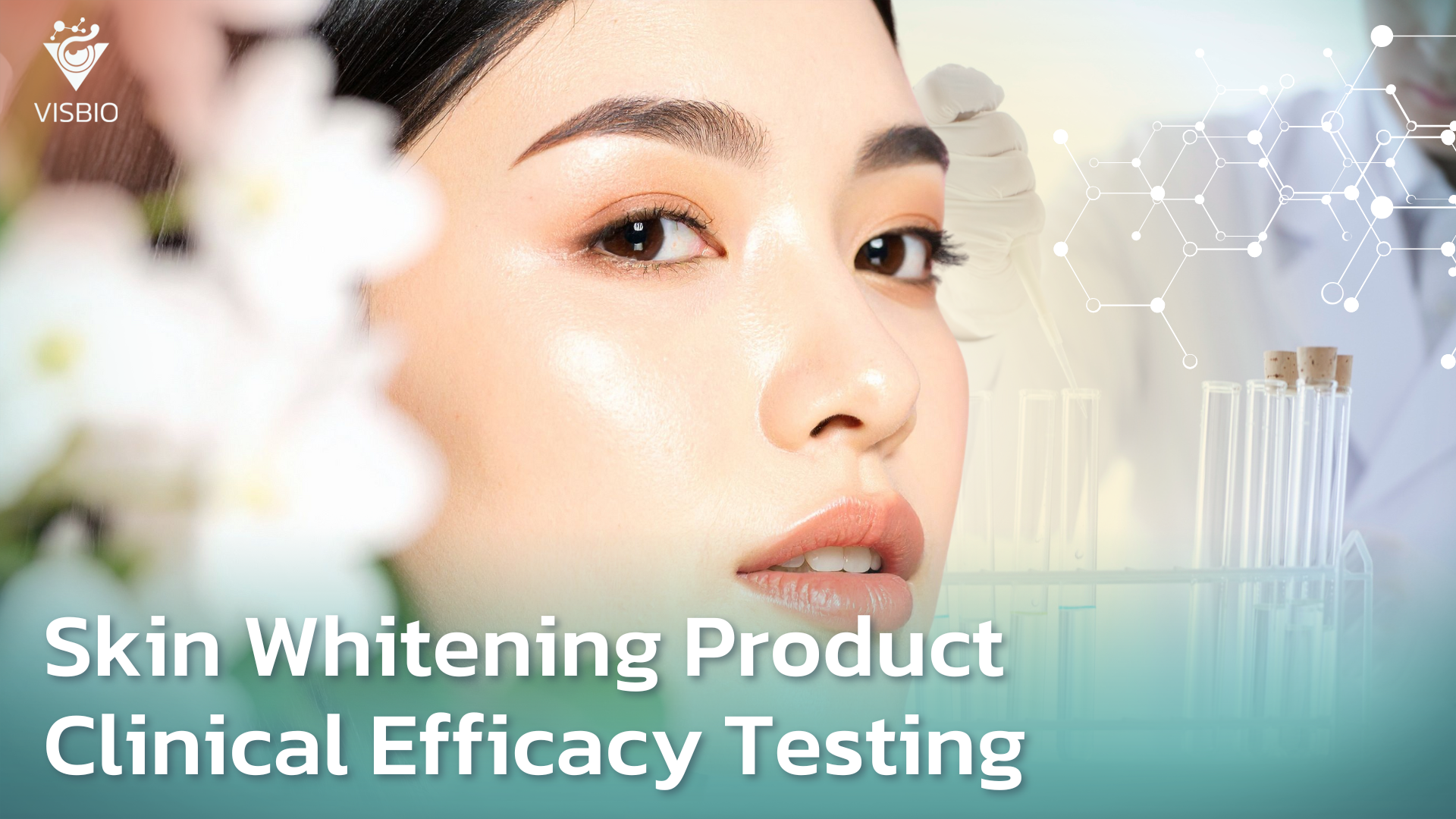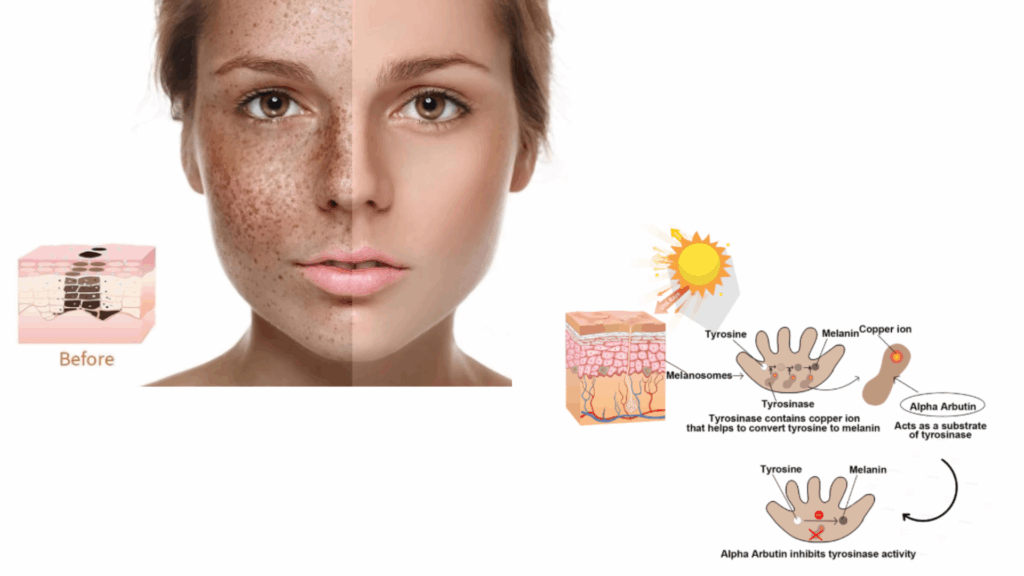
Information on Skin Whitening Product Clinical Efficacy Testing
Visbio Company Limited specializes in professional clinical trials designed specifically for whitening products and cosmetic skincare. Our Whitening Product Clinical Trial service is carefully developed to scientifically validate the effectiveness of skin whitening formulations. This clinical skincare testing ensures that your products meet rigorous international standards and can deliver visible and measurable results. Utilizing advanced scientific instrumentation, particularly the Chromameter, which is globally recognized for its high precision in measuring skin color, we provide comprehensive quantitative data alongside qualitative assessments through subjective evaluation questionnaires answered by actual users.
Our clinical trial process provides brands with solid scientific evidence, bolstering consumer trust and helping skincare businesses differentiate themselves within the highly competitive cosmetic market. It is the perfect solution for brands aiming to validate their product claims scientifically, improve their formulas, and confidently communicate their products’ benefits to consumers.
Mechanism of Action for Skin Whitening Products
Skin whitening or brightening products typically function through several distinct biological mechanisms, targeting melanin the primary pigment responsible for skin color:
- Tyrosinase Inhibition The enzyme tyrosinase plays a critical role in melanin synthesis. Active ingredients in whitening products often inhibit tyrosinase activity, effectively reducing melanin production and leading to visibly lighter skin.
- Melanosome Transfer Inhibition This mechanism reduces the movement of melanin-containing melanosomes to the upper skin layers, which helps prevent dark spots and uneven skin tone. As a result, skin appears brighter, more even-toned, and radiant.
- Increased Cell Turnover Promoting rapid skin cell turnover helps shed older, melanin-rich cells on the skin’s surface. This mechanism reveals newer, brighter skin cells underneath, significantly enhancing overall skin brightness and clarity.
- Antioxidant Protection Antioxidants protect skin from environmental stressors, such as UV radiation, pollution, and oxidative stress, all of which contribute to skin dullness and hyperpigmentation. Regular application of antioxidant-rich products helps maintain youthful, radiant, and clear skin.
Influencing Factors in Whitening Product Efficacy Testing
To accurately assess whitening product performance through clinical skincare testing, several key factors must be carefully considered:
- Active Ingredient Types and Concentrations:
Ingredients such as Arbutin, Vitamin C, and Kojic Acid have varying efficacies dependent on their concentration and formulation method.
- Individual Skin Characteristics:
Natural skin tone, skin type (dry, oily, combination), age, and gender all significantly impact how effectively a whitening product works on different users. Personalized clinical trial groups ensure accurate and generalizable outcomes.
- Consistency and Duration of Product Use:
Regular and consistent usage over adequate periods is essential to achieving and assessing noticeable skin whitening results. Clinical trials must clearly define and enforce consistent usage conditions.
- Environmental Exposure:
Exposure to sunlight, heat, humidity, and pollution significantly impacts skin appearance and melanin activity, influencing overall efficacy outcomes. Clinical trials incorporate controlled environments to ensure reliable results.
Suitable Products for Whitening Efficacy Testing
The Whitening Product Clinical Trial at Visbio is ideal for evaluating a wide range of cosmetic skincare products, including:
- Facial and body creams explicitly formulated for skin whitening
- Serums and essences with high concentrations of whitening active ingredients
- Face masks, sheet masks, and specialized whitening treatments
- Sunscreens designed to minimize dark spots and improve skin tone consistency
Our service thoroughly examines all product forms, ensuring reliable results across various formulations.
Detailed Evaluation Process
Our comprehensive evaluation within clinical trials consists of two primary components:
- Quantitative Skin Color Measurement using Chromameter
We employ the Chromameter for precise skin color measurements, specifically assessing skin brightness (L* value). Renowned for accuracy and repeatability, this instrument provides scientifically reliable quantitative data to detect even subtle changes in skin tone following product use.
- Qualitative Evaluation using Subjective Questionnaires
Volunteers participating in the trial provide qualitative data through detailed questionnaires, addressing their personal experiences. These include perceptions of improved skin brightness, evenness of skin tone, reduced appearance of dark spots, and overall satisfaction. This comprehensive qualitative feedback complements the quantitative Chromameter data, presenting a well-rounded view of product efficacy.
Additionally, Visbio expert team provides insights and recommendations derived from trial results, guiding brands on potential improvements and product formulation adjustments.
Literature:
- Chang, T. S. (2009). “An Updated Review of Tyrosinase Inhibitors.” International Journal of Molecular Sciences, 10(6), 2440-2475.
- Hakozaki, T., Minwalla, L., Zhuang, J., Chhoa, M., Matsubara, A., Miyamoto, K., & Greatens, A. (2002). “The effect of niacinamide on reducing cutaneous pigmentation and suppression of melanosome transfer.” British Journal of Dermatology, 147(1), 20-31.
- Mukherjee, S., Date, A., Patravale, V., Korting, H. C., Roeder, A., & Weindl, G. (2006). “Retinoids in the treatment of skin aging: an overview of clinical efficacy and safety.” Clinical Interventions in Aging, 1(4), 327-348.
- Petruk, G., Del Giudice, R., & Rigano, M. M. (2018). “Antioxidants from plants protect against skin photoaging.” Oxidative Medicine and Cellular Longevity, 2018.


